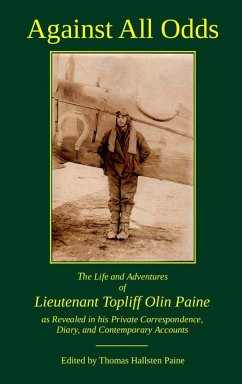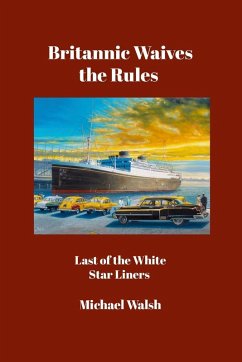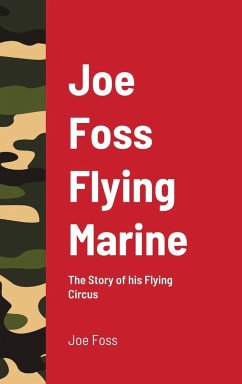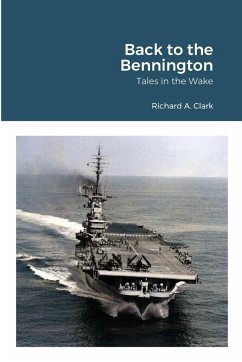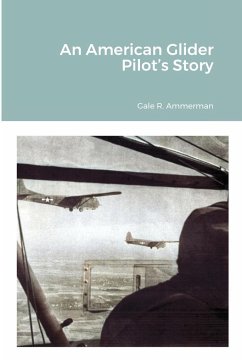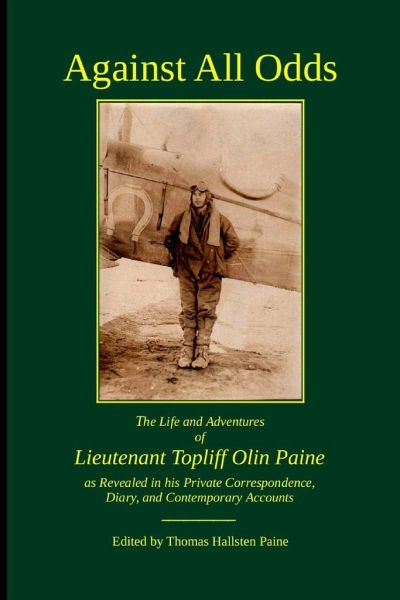
Against All Odds
The Life and Adventures of Lieutenant Topliff Olin Paine as Revealed in his Private Correspondence, Diary, and Contemporary Accounts
Versandkostenfrei!
Versandfertig in 1-2 Wochen
45,99 €
inkl. MwSt.

PAYBACK Punkte
23 °P sammeln!
Like other legends of his era, he died before he was thirty. Unlike most others, his accomplishments embraced a far greater range of activities. As a result, he packed more excitement into his short span of years than most people could in ten lifetimes. From severe winter hazards in the mountains of Idaho to confrontations with hooligans as a U. S. Forest Service Ranger. From the challenges of learning to fly an airplane to those of teaching aviation cadets the fine arts of aerial dogfighting as a Stunt Instructor in Aerial Gunnery with the U. S. Army Air Service in WWI. As an aerial entrepren...
Like other legends of his era, he died before he was thirty. Unlike most others, his accomplishments embraced a far greater range of activities. As a result, he packed more excitement into his short span of years than most people could in ten lifetimes. From severe winter hazards in the mountains of Idaho to confrontations with hooligans as a U. S. Forest Service Ranger. From the challenges of learning to fly an airplane to those of teaching aviation cadets the fine arts of aerial dogfighting as a Stunt Instructor in Aerial Gunnery with the U. S. Army Air Service in WWI. As an aerial entrepreneur, from performing heart-stopping aerial maneuvers at air shows to creating and commanding an air force for the governor of Baja California to protect the territory from invading Mexican troops. From flying the most treacherous section of the transcontinental route for the U. S. Airmail Service to having his airplane's engine self-destruct in flight. All this and so much more until a tragic and fatal accident at home prematurely ended his life. The accounts in this book are especially compelling as the protagonist himself wrote them in letters to his parents. In addition to the correspondence, there are diary entries from his earlier years and newspaper articles written by the reporters who followed his career. The text is illustrated with numerous never-before-published photographs, many of them taken by Top. Come ride with "Top" Paine on this action-packed journey through the early years of the Twentieth Century! It's all true, it's all real, and it's a trip you'll neither forget nor regret taking.



